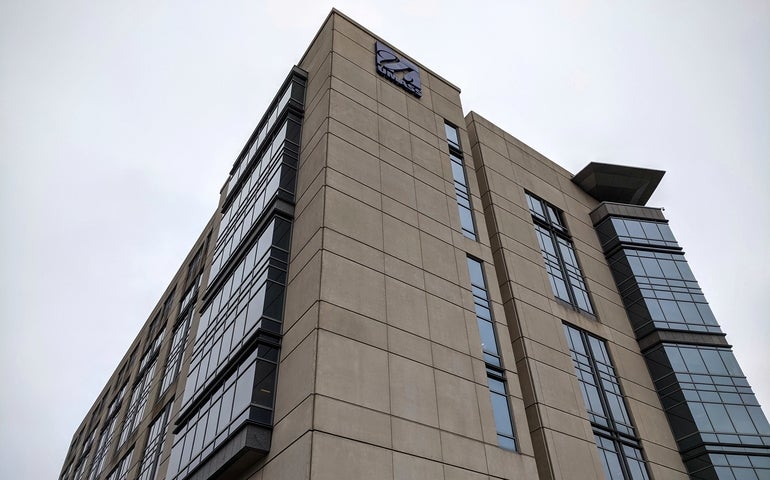Researchers at UMass Medical School and Massachusetts General Hospital have announced a major breakthrough in ALS research: a therapy that suppresses a harmful gene that causes the nervous system disease.
The advancement, announced by researchers Wednesday and set to appear in the New England Journal of Medicine, is the latest made by UMass Medical School researchers, who’ve also identified critical genes that influence the development of ALS.
A gene called SOD1 carries a genetic defect causing ALS, or amyotrophic lateral sclerosis, which gradually harms a victim’s ability to move. New work by UMass Medical School researchers has been able to reverse that damage using something called a vector.
In a lab, researchers have been able to transform a harmless virus, replacing its DNA with a synthetic RNA, or ribonucleic acid, that’s specifically designed to attack the SOD1 gene. In a study, that altered virus was injected into participants’ spinal fluid, delivering the lab-modified DNA. Far less harmful proteins were created by the gene after the injection, researchers found.
The researchers are the first to safely treat two research participants with a synthetic microRNA, the medical school said. The hope is that by targeting the SOD1 gene, the breakthrough can slow down or even reverse the progression of that type of ALS.
The study was led by two UMass Medical School researchers: Dr. Robert Brown Jr., a professor of neurology and director of the school’s neurotherapeutics program, and Dr. Christian Mueller, an associate professor of pediatrics. They worked in consultation with two doctors at Mass. General: Dr. Merit Cudkowicz, the hospital’s chief of neurology, and Dr. James Berry, the chief of the hospital’s division of ALS and motor neuron diseases.
“The biggest takeaway from this study is that we delivered a new class of silencing gene therapy to patients and suppressed levels of the ALS gene SOD1 quite effectively,” Dr. Mueller said in a statement.
Apic Bio, a Cambridge company founded by Brown and Mueller, has licensed the technology from the medical school and is leading the next phase of clinical trials.
Dr. Brown has long been a leader in ALS research. In 1993, a team he led discovered the first gene linked to hereditary ALS, which is now known as SOD1.
Among other ALS research done at UMass Medical School, Dr. John Landers, a neurology professor, has also discovered new genes related to ALS that could help researchers find a cure. Some of the research has been funded by proceeds from the Ice Bucket Challenge, a popular fundraising initiative in 2014.
ALS, also known as Lou Gehrig’s disease, is a progressive neurodegenerative disease that affects nerve cells in the brain and the spinal cord. The disease gradually makes it more difficult for a victim to speak, swallow, walk or even breathe.
More than 5,000 people are diagnosed with it each year, and face a life expectancy of two to five years, according to the ALS Association. About 5% to 10% of ALS cases are inherited. Toxic mutations in the SOD1 gene account for about 20% of inherited ALS cases, according to UMass Medical School.

